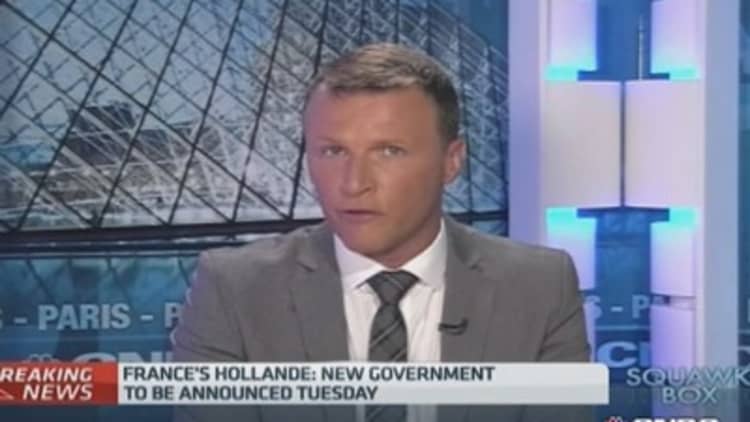The dissolution of the French government following disputes between leftists and moderates over economic reforms has raised concerns the country is on the brink of political crisis.
Prime Minister Manuel Valls handed in the resignation of his government on Monday, in response to calls by Economy Minister Arnaud Montebourg at the weekend for an end to the economic reform agenda pushed by President Francoise Hollande.
Montebourg told a news conference on Monday that he did not intend to join the reshuffled government. "This afternoon, I informed the prime minister that, if he considered I was in the wrong, that if he deemed my convictions counter to the direction of the government he leads, then in that case I thought it necessary for me to be let go," Montebourg said, according to Reuters.
A new government excluding Montebourg and others on the left of the party is expected to be formed on Tuesday. It is the second time in six months the government has dissolved, and a further sign of the political turmoil at the heart of France's ruling Socialist party.
"We think this represents a welcome clarification of the economic strategy, but increases the risk of a political crisis," warned Barclays analyst Philippe Gudin in a research note on Monday.
"We expect the pace of economic reforms to accelerate in the coming months, in line with President Hollande's commitments last week. We also expect France to return to the forefront of the European political stage."
Read MoreFed and ECB: Spot the difference
An economic recovery has struggled to take hold in France, which has been dubbed the "sick man of Europe" by some economists. Economic growth was flat in both the first and the second quarter of 2014.
Montebourg has argued that Hollande's deficit-reduction measures, which include a reduced social security budget for 2014, are prolonging France's economic stagnation. His position echoes that of a group of 30-50 members of parliament who have attempted to block reforms.

Douglas Webber, professor of political sciences at INSEAD, told CNBC that the collapse of the government was "not entirely unexpected", given the divisions in the government, and the slim majority held by the Socialist party.
Read More
"The conflicts within the government, the Socialist party and the French left have been growing for some time, fueled by economic stagnation, growing unemployment and the government's growing unpopularity," Webber said on Monday.
Hollande and Valls' ability to pass the 2015 austerity budget through parliament now relies on their ability to form a government that balances the need for removing the rebellious left with maintaining a parliamentary majority.
"It (the reshuffled government) will contain fewer representatives from the left-wing of the Socialist party and be more heavily dominated by the 'moderate' currents in the Socialist party, closer to the position of PM Valls on issues of economic and European policy," forecast Webber.
By Hamza Ali, special to CNBC.com, follow him at @Hamza_M_Ali

